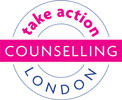Personal wellness refers to a holistic integration of physical, mental, emotional, and social well-being. It’s more than just the absence of disease—it’s about thriving. Wellness is an active process of making intentional choices toward a more balanced and fulfilling life.
The key dimensions of personal wellness typically include:
- Physical Wellness – Caring for your body through nutrition, exercise, sleep, and preventive health care.
- Emotional Wellness – Understanding, accepting, and managing your feelings effectively.
- Mental Wellness – Keeping your mind sharp, curious, and resilient through lifelong learning and mental challenges.
- Social Wellness – Building healthy relationships and meaningful connections with others.
- Spiritual Wellness – Finding purpose, values, and meaning in life, which may or may not involve religion.
- Environmental Wellness – Living in harmony with your surroundings and taking steps to reduce environmental harm.
Why Personal Wellness Matters
Investing in personal wellness brings countless benefits:
- Increased energy and vitality
- Improved mood and emotional balance
- Better sleep quality
- Stronger immune system
- Greater productivity and focus
- Enhanced relationships
When you prioritize wellness, you’re better equipped to handle life’s challenges, pursue your goals, and enjoy meaningful experiences.
Practical Steps to Improve Personal Wellness
Achieving personal wellness doesn’t require dramatic lifestyle changes overnight. Here are some practical and sustainable steps you can take:
- Move Your Body Daily
Aim for at least 30 minutes of physical activity—walking, dancing, yoga, or strength training. Exercise boosts mood, energy, and overall health. - Eat Mindfully
Choose whole, nutrient-dense foods most of the time. Limit processed sugars, excess alcohol, and artificial additives. Hydration is just as important—drink plenty of water throughout the day. - Prioritize Sleep
Adults typically need 7–9 hours of quality sleep per night. Create a calming bedtime routine and limit screen time before bed. - Practice Stress Management
Mindfulness, meditation, journaling, or deep breathing can help you manage daily stress. Don’t hesitate to seek support from a therapist or counselor when needed. - Foster Relationships
Invest time in meaningful conversations, express appreciation, and surround yourself with supportive people. Human connection is a powerful source of wellness. - Create Boundaries
Protect your energy by saying no to activities or relationships that drain you. Honor your time and mental space. - Engage in Lifelong Learning
Read, take up a new hobby, or try something creative. Stimulating your brain supports mental agility and satisfaction.
At Take Action counselling we would like to support you in your journey to personal wellness, whether that is talking through a difficult relationship situation, giving you information around boundaries or encouraging you to take the first steps on doing exercise for your physical well being. Email us for more information at rebecca@takeactioncounselling.co.uk
Wherever you are in your journey to personal wellness – taking small, intentional steps in each area of wellness, can build a lifestyle that supports your health, happiness, and longevity. Remember: taking care of yourself isn’t selfish—it’s essential. When you’re well, not only can you live a healthier life – you can also show up better for others when they need you.
